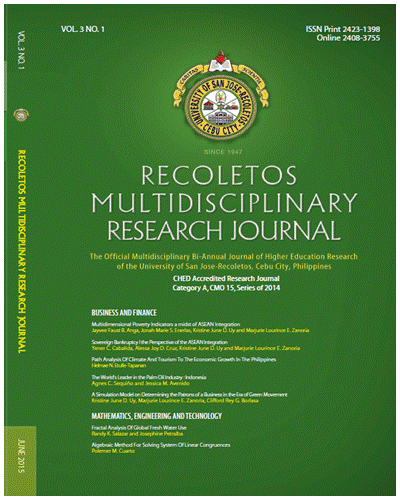Disrupting Education: Which between technological innovations and the ‘incredulity towards metanarratives’ is disrupting education?
DOI:
https://doi.org/10.32871/rmrj1503.01.08Keywords:
disruptions, disruptive innovation, critical theory, pedagogy, OBE, postmodernism, post-structuralismAbstract
According to Clayton Christensen’s Disruptive Innovation Theory, upstarts eat up
market share often with innovative and more affordable products and soon become the new market leader. Christensen sees its relevance in many aspects of human endeavor including in education. Cheaper online education is said to be disruptive of colleges offering expensive classroom-based modes of instruction. This concern was highlighted in a forum held in Russia and attended by education leaders around the globe. Other scholars, however, dispute this. For them, it is the interruptions to the totalizing attempt of most scholarships and not the impact of technological innovations that is disrupting education. This paper supports this view, especially from the standpoint of developing countries long shackled by western-oriented paradigms.
References
Christensen, C. M. (1997) The innovator’s dilemma: when new technologies cause great firms to fail, Brighton, MA : Harvard Business School Press.
Christensen, C. M., Horn, M. B., Caldera, L., Soares, L. (2011) Disrupting College: How Disruptive Innovation Can Deliver Quality and Affordability to Postsecondary Education, Mountain View, CA : Innosight Institute.
Derrida, J. (1978). Writing and Difference, Chicago, IL: University of Chicago
Foucault, M. (1989) . The Archaeology of Knowledge,Routledge, London : Routledge.
Freire, P. (1970) . Pedagogy of the Oppressed, Continuum International Publishing : London.
Lyotard, J. F. (1984). The Postmodern Condition: A Report on Knowledge, Minneapolis, MN: University of Minnesota
Journal articles
Christensen, C. M., Aaron, S., & William, C. (2003) Disruption in Education, Educause Review, 38 (1), 44-55
Markides, C. (2005, December). Disruptive Innovation: In Need of Better Theory. The Journal of Product Innovation Management, 23 (1), 19-25.
Rasiński, L. (2011). The idea of discourse in poststructuralism: Derrida, Lacan and Foucault. Teraźniejszość– Człowiek– Edukacja: A quarterly of social and educational ideas, 7-22.
Velez, J. Jr. (2014). To Construct or Deconstruct a Grand Theory of Communication, CNU Journal of Higher Education.
Article in a Magazine (Online)
Lepore, J. (2014, Jun 23). The Disruption Machine. The New Yorker, 90, 30-n/a. Retrieved from www.newyorker.com/ magazine/2014/06/23/the-disruptionmachine
Report
Asian Development Bank. (2011) Higher Education across Asia: an overview of issues and Strategies. Manila : Author.
Internet References
Bloomberg. (2015, October). Is the theory of disruption dead wrong? Retrived from http://www.bloomberg.com/news/articles/2015-10-05/did-clay-christensenget-disruption-wrong
Downloads
Published
How to Cite
Issue
Section
License
Copyright of the Journal belongs to the University of San Jose-Recoletos


